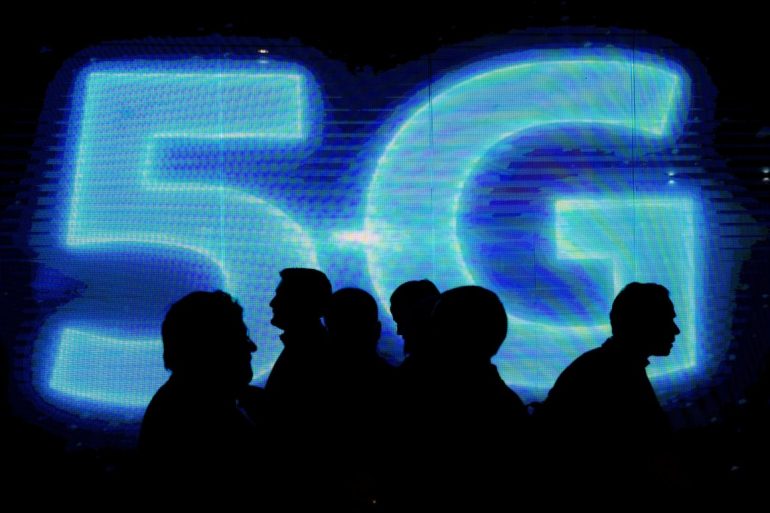Conclusions on the EU digital transformation, including the introduction of a European digital identity (e-ID), the development of 5G, artificial intelligence, the restoration of the single market and the new EU industrial policy, were adopted by the 27 Heads of State and Government in Brussels .
In particular, the European Council held an in-depth discussion on pandemic management COVID-19. It is determined to stand united in this difficult situation and calls on the Council, together with the Commission, to further intensify overall coordination efforts and work on vaccine development and distribution at EU level. The European Council will regularly review this issue.
According to the conclusions, "the European Council calls for the development of a pan-European framework for secure public electronic identification (e-ID), including interoperable digital signatures, which will provide individuals with access to their online identity and data public, private and cross-border digital services. "Calls on the Commission to submit a proposal for a 'European Digital Identification Initiative' by mid-2021."
As "the EU must take the lead in the development of secure, reliable and ethical artificial intelligence worldwide", the European Council calls on the Commission:
- propose ways to increase European and national public and private investment in research, innovation and development in the field of artificial intelligence;
- ensure better coordination and more networks and synergies between European research centers based on excellence;
- provide a clear, objective definition of high-risk artificial intelligence systems.
The European Council then endorses the Council conclusions of 9 June 2020 on shaping Europe's digital future. Calls on the EU and the Member States to make full use of the 5G cybersecurity toolkit adopted on 29 January 2020, and in particular to apply the relevant restrictions to high-risk providers for key elements defined as critical and sensitive to coordinated by EU risk assessments. The European Council emphasizes that all potential 5G suppliers should be evaluated on the basis of common objective criteria.
To ensure the rapid implementation of 5G technology across the EU, the European Council also calls on all Member States to submit to the Commission their national plans for the installation of this technology by the end of this year, as set out in the Action Plan for the 5G.
The 27 note that at least 20% of the funds under the Recovery and Sustainability Mechanism will be allocated to the digital transition, including for small and medium-sized enterprises. Together with the foreseen amounts of the MFF, these funds should contribute to the promotion of objectives such as:
- boosting the European development of the next generation of digital technologies, including supercomputers and quantum computing, array chain and anthropocentric artificial intelligence;
- Capacity building in strategic digital value chains, in particular microprocessors;
- accelerate the implementation of very high capacity infrastructure and secure networks - including fiber optics and 5G networks - throughout the European Union;
- strengthen the EU's capacity to protect itself from cyber threats, provide a secure communication environment, in particular through quantum encryption, and ensure access to data for judicial and law enforcement purposes
- harnessing the full potential of digital technologies to achieve the ambitious environmental and climate action objectives set out in the July package
- upgrading digital capabilities in education systems.
The European Council underlines the need to return to the smooth functioning of the single market "as soon as possible".
However, he stressed that this is not enough, noting that "we will learn lessons from the crisis caused by the disease COVID-19"We will address the fragmentation, barriers and weaknesses that remain and increase our ambition."
In addition, the European Council endorses the Council conclusions of 21 September 2020 on a deeper single market for a strong recovery and a competitive, sustainable Europe, and calls in particular on:
- strict enforcement and enforcement of single market rules, in line with the Commission's Single Market Rules Action Plan;
- removing the remaining unjustified barriers, especially in the service sector, and avoiding new obstacles;
- updating the European competition framework to ensure that it meets the challenges of the green transition, digital transformation and global developments.
As stated, "this framework should provide clear rules for economic operators and support innovation, including in the digital sector. The possibility of establishing rules on the systemic role and responsibilities of online platforms with significant network results should be explored. "
The European Council looks forward to the completion of the Commission's review of competition rules, which is currently under way, with the first results scheduled for 2021.
Finally, the European Council calls for a new system of global economic governance based on an ambitious and balanced WTO agenda at its core, while ensuring reciprocity and protecting us from unfair and abusive practices. Enforcement regulation needs to be upgraded, work on the proposal on the instrument for international public procurement needs to be accelerated and mechanisms need to be further developed to address the distortive effects of foreign subsidies on the single market.
Source: KYPE
